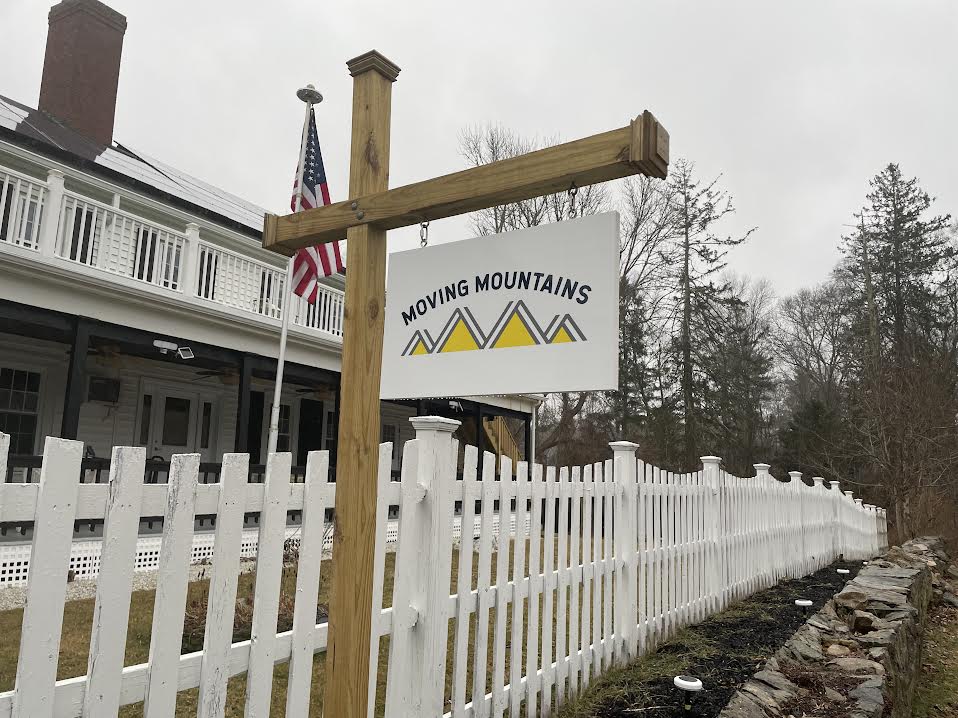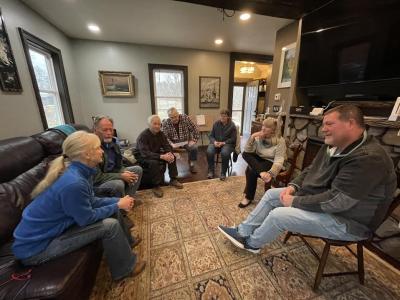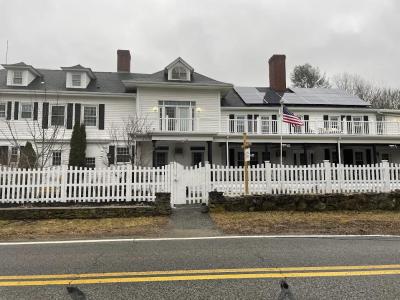Neighbors critical of plan for Marion Road transitional housing
MIDDLEBORO — Neighbors of a proposed transitional housing facility at 332 Marion Road are circulating a petition expressing their opposition to the plan, citing safety concerns and a potential loss in their property value.
The 77-bed facility would house people who were formerly incarcerated, aged out of foster care or facing housing insecurity, according to Jason McLeod, who owns the building with Meredith Ruff.
Neighbors are circulating a petition expressing their concerns about the project.
“These individuals will affect the public safety, welfare and overall security and purpose the residents have chosen to live in a rural neighborhood,’’ the petition reads in part. “Additionally the presence of this facility will likely involve criminally-minded individuals from other areas to visit the facility and our neighborhood.’’
Much of the opposition to the project involves the Dover Amendment and whether that state statute applies in this case.
The Dover Amendment mandates that projects used for educational and religious purposes be given more favorable consideration than other uses, such as commercial, residential or industrial.
The area where the building is located is zoned rural-residential, Town Planner Leeann Bradley said.
The Marion Road project would provide educational opportunities for its clients, McLeod and building co-owner Meredith Ruff have said, which could allow it to be covered by the Dover Amendment.
Moving Mountains, the corporation name of the facility, is teaming up with a non-profit organization called ACT, which stands for Ascension Career Training.
A key component of this transitional housing is its connection to career training, McLeod said. He is making connections with area businesses that would train residents in a variety of career skills, he said.
This would be the second attempt at the project. Last fall, the home was within weeks of opening, MacLeod said, when a collaboration with a Brockton-based non-profit fell through.
Both neighbors of the rural area and town officials aren’t so sure whether the educational component of the project falls under the Dover Amendment.
“We're working with their attorneys clarifying the Dover Amendment and whether it applies,’’ Town Manager James McGrail said.
Neighbor Rich Silva said the project owners are “using the Dover Amendment as a smokescreen.’’ Owners are approaching the amendment “as a carte blanche and it’s not.’’
Neighbors also questioned combining three groups, those who were formerly incarcerated, aged out of foster care or facing housing insecurity, into one facility.
“You can’t put three diverse groups like that [together] and be successful,’’ neighbor Karen Howland said.
“These groups should never be combined,’’ Silva agreed.
McLeod did not respond to several requests for a comment on the petition.
Ruff has previously said that “we’re not naive to think there are not going to be problems.’’ But by hiring the right staff, she said they are staying ahead of potential issues.
Ruff has said she understands neighbors might be uncertain about the new business and acknowledged she has heard some concerns. She said that traditional housing is often “not supervised’’ or “not well-kept,’’ but this one will be.
But neighbors are concerned that the clientele, particularly those recently incarcerated, could pose safety risks, the neighbors said.
“Allowing a facility of this type into a rural neighborhood will be a huge mistake,’’ neighbor Robert Ricci said. “An enterprise like this is better suited where there is police, transportation, fire protection, medical and other facilities nearby.’’
Neighbor John Ewas also questioned whether the facility had the infrastructure capacity and safety features to house more than 70 people. “There’s too many questions,’’ he said.
Residents who live near the proposed facility agree that they need more answers. “The community is very interested in what is happening here,’’ Silva said.















